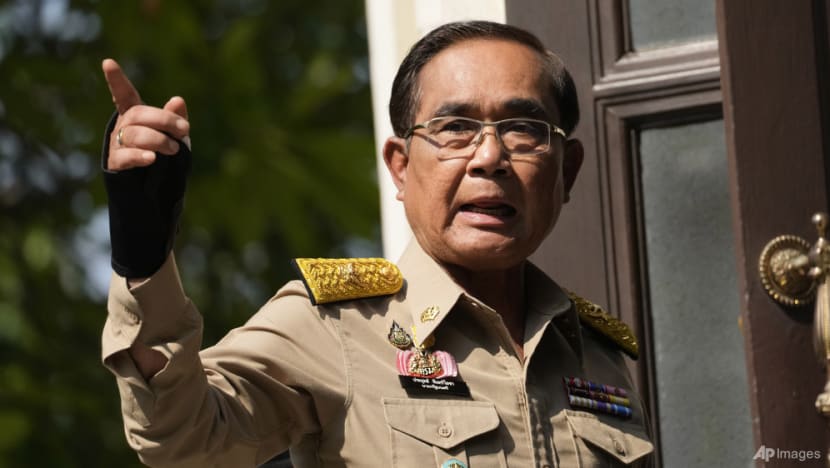Thailand dissolves parliament ahead of May general election

Thailand's Prime Minister Prayut Chan-o-cha talks to reporters at the government house in Bangkok, Thailand on Mar 20, 2023. (Photo: AP/Sakchai Lalit)
BANGKOK: Thailand's King Maha Vajiralongkorn has issued a royal decree on the dissolution of parliament, according to an announcement published in the Royal Gazette on Monday (Mar 20), paving the way for a general election to be held in May.
The royal decree, which was issued on Mar 17, is effective on Monday. The Thai constitution stipulates that polls must be held between 45 and 60 days after the dissolution of parliament. This means the polls will take place between May 4 and 19.
The exact date of the election will be announced by the Election Commission and published in the Royal Gazette.
Last week, Prime Minister Prayut Chan-o-cha requested a royal decree to dissolve parliament prior to the end of the government's four-year term on Mar 23.
Thailand held its previous election on Mar 24, 2019, marking a transition from nearly five years of military regime towards re-establishing a democratically elected government.
Junta leader Gen Prayut – a candidate from Palang Pracharat Party at that time – was elected prime minister. He staged a military coup in 2014 to seize power from Yingluck Shinawatra’s democratically elected government.
Related:
Although the pro-junta Palang Pracharat failed to secure the majority of seats in the Lower House in 2019, the party had a built-in advantage, thanks to support from 250 senators selected and appointed by the military government and General Prayut himself.
The current constitution gives power to the Senate – the upper house in parliament – to jointly select the prime minister in conjunction with the House of Representatives – the lower house – during the initial five years of the first government to be formed after the election.
This means a prospective prime minister must be approved by more than half of the combined 750-member assembly.
As a result, a political party needs to garner at least 376 votes in a joint sitting – either from both Houses or only from the Lower House's 500 members – in order for its candidate to win the premiership and form the government.
The Senate’s role in the prime ministerial selection means Thailand’s future government does not need to win the popular vote if it can secure support from at least 376 parliamentarians.












